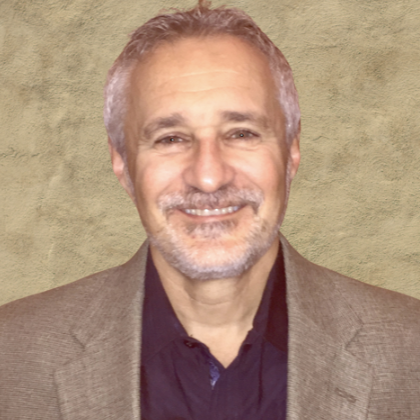A Monthly Online Training Course: January – June 2025
Presented by Steve Shapiro, PhD
Level: Open to all mental health clinicians and most beneficial if you have at least a moderate degree of experience/familiarity with experiential dynamic therapies.
Discover how mastering the critical initial phase of therapy can set the stage for lasting symptom change, offering a solid foundation for the entire therapeutic journey.
DESCRIPTION
Initial sessions of multisession treatment have been shown to be particularly effective and to be a critical phase with benefits and symptom changes maintained thereafter. (Katie Aafjes van Dorn, Kristen Sweeny. (2019). The effectiveness of initial therapy contact: a systematic review. Clinical Psychology Review, 74.)
In addition to the importance of the initial phase in providing needed understanding and symptom reduction when clients are suffering the most, and providing a solid foundation for the subsequent course of the therapy, these sessions provide superb teaching opportunities.
By focusing on the initial phase or trial therapy (first sessions), we will have an ideal opportunity to explore foundational topics like psychodiagnosis, tracking multiple relevant parameters, goal setting, task agreement, choice points for differential interventions, forks in the road, exit ramps, motivation, resistance, decision trees and case formulation. By reviewing multiple first sessions, participants will gain a sense of factors common in the crucial initial phase that provide the foundation for the remainder of the therapy course. Looking at these issues in a first session is less complicated because there is no prior therapy history that influences the process. Trainees often comment that it is more helpful to see “HOW you get there” rather than just watching “BEING there.” The primary goal is to show that process in detail, including all of the variations and uncertainty involved, as it is unfolding.
FORMAT
- The primary format will involve review of unedited video demonstrations with microanalysis. Without the routine use of PowerPoint learning modules, there will be ample time to explore topics as they arise and practice various options for responding.
- By focusing on the initial phase or trial therapy (mostly first sessions), we will have an ideal opportunity to explore foundational topics like psychodiagnosis, tracking multiple relevant parameters, goal setting, task agreement, choice points for differential interventions, forks in the road, exit ramps, motivation, resistance, decision trees and case formulation. By reviewing multiple first sessions, participants will gain a sense of factors common in the crucial initial phase that provide the foundation for the remainder of the therapy course. Looking at these issues in a first session is less complicated because there is no prior therapy history that influences the process. Trainees often comment that it is more helpful to see “HOW you get there” rather than just watching “BEING there.” The primary goal is to show that process in detail, including all of the variations and uncertainty involved, as it is unfolding.
- Active engagement, skill building, and repetitive deliberate group practice (vs passive observation) will enhance the learning process. We will practice interventions in context together. There will be minimal focus on theorizing about meta psychological principles; instead, we will keep a practical focus on “response to intervention” and learn from the patient and the process. In this spirit, we will consider other strategies as needed, drawing from approaches such as more traditional psychodynamic therapy, CBT, DBT, Focusing, IFS, coherence therapy, and crisis intervention.
- A case conference format involves exploring a case and ways to proceed rather than focusing on a topic that is decided a priori. Approaching the material through this lens will more closely reflect real clinical scenarios you encounter daily, resulting in a learning process that is more complex, realistic, and immediately applicable.
- A group deliberate practice approach that involves microanalysis, facilitated discussion and experience-near exercises will enhance practical skill building. Group participation reduces performance anxiety and is more enjoyable, because everyone participates in a shared task (diffusion of responsibility). We can learn from each other and have fun at the same time! When I pause the video, all will be asked to respond in a structured way that gives the opportunity to practice the designated principles. Intellectual understanding (conceptual knowledge) is not enough. Knowing what to do when, and how to do it naturally is difficult. It takes deliberate repetition to internalize these skills (procedural knowledge) in a way that is authentic.
- A focus on practical skill building will test your understanding of the principles and help you practice their implementation. This trial-and-error method will translate to changes in your clinical effectiveness and confidence much faster than a more didactic approach that focuses on simply understanding theoretical principles or passively watching video demonstrations.
- Fundamental principles will be used as the ideal “unit of learning” to integrate conceptual knowledge and procedural technique. We will use easily understood, concrete training aides repetitively to practice foundational concepts, such as “highlight and invite” or “fork in the road” until they become well integrated into your clinical toolkit.
- We will concentrate on phase-specific interventions to practice accurately psycho-diagnosing the client’s position moment to moment regarding a variety of parameters and examine ways to intervene accordingly.
- We will emphasize both the resistance that naturally emerges and the presence of healthy internal resources. The latter aspect is often minimized or ignored, and we need to be sensitized to its presence, even when (especially when?) it is concealed. We will learn ways to hear and amplify buried, healthy “whispers,” as well as methods to juxtapose them against the resistance to create the internal conflict or “fork in the road” necessary to offer the client an autonomous deliberate choice.
- In addition to these “specific factors” related to theory and technique, there will be a focus on the “person of the therapist” and “common factors.” All of these areas are equally important in determining positive outcomes.
Through repetition and active trial and error involvement, participants will practice the principles by actively applying them, not just passively understanding them. Receiving continuous feedback and trying again is necessary to fine tune these skills.
PARTICIPANTS ROLE
Engagement and privacy are two issues central to the success of any advanced learning environment. Consequently, you will be required to keep your camera on throughout the webinar. The patient material that is so vital to experiential learning is highly sensitive. Live video demonstrations from actual psychotherapy sessions provide an invaluable training tool that is only available due to the generosity and trust of our patients. It must be protected at all costs. Increasingly, guidelines are suggesting the inadequacy of transmitting this material into a “blank space” without awareness of the environment in which it is being received
BEYOND AEDP SPECIFICS
AEDP techniques such as affirmation, transformance detection, defense melting, defense bypassing, and healing-oriented relational processing—key elements associated with ‘healing from the get-go’ in AEDP—will not be the central focus. There will be emphasis on managing high levels of resistance, in addition to the ‘anxiety-regulating’ aspects of AEDP, using a broad range of EDT interventions that are outside of the AEDP toolkit.
The focus will be on exploring rich clinical materials that demonstrate the potential for deep work and transformation in initial sessions. This format offers a unique opportunity for participants to engage with practitioners from various modalities, including I-STDP, fostering a diverse and collaborative learning environment. This approach aims to broaden perspectives and enhance understanding of different therapeutic techniques and their applications in early-stage therapy.
Who Should Attend
Licensed mental health practitioners (or the local/regional equivalent to ‘licensed’*) as well as interns legally practicing under the license of a supervising practitioner. These include Counselors, Psychoanalysts, Psychologists, Psychotherapists, Social Workers, other Behavioral Health Therapists and related professionals.
Level: Open to all mental health clinicians and most beneficial if you have at least a moderate degree of experience/familiarity with experiential dynamic therapies.
If you have a question about the relevance of this course for you and/or your eligibility for this course please contact admin@aedpinstitute.org.
Meet the Presenter

Steve Shapiro, PhD
Steve Shapiro, PhD, is a clinical psychologist who maintains a full-time private practice in suburban Philadelphia and has over twenty years clinical and teaching experience. He has been practicing various forms of Experiential Dynamic Therapy (EDT), such as Intensive Short-Term Dynamic Psychotherapy (ISTDP), since the mid-1990’s. He is a founding member of the AEDP Institute and has been studying with Dr. Diana Fosha, the developer of AEDP, since 2003 Dr. Shapiro conducts lectures, workshops and ongoing training internationally. His presentations are often commended for translating complex clinical theory into clear, precise, and practical techniques which are easily understandable and readily applied immediately in clinical settings by therapists of all orientations. (Read More…)Location, Dates and Times:
Location: Online via ZOOM
Dates and Times:
6 Thursdays | January – June 2025
11:00 AM to 2:00 PM EST (3 hours)
January 30, February 27, March 27, April 24, May 22, June 19, 2025
Important Note – Read this before you register:
This is not an AEDP training. The webinar includes fundamentals of all Experiential Dynamic Therapies (EDTs) including AEDP and Intensive Short-Term Dynamic Psychotherapy (ISTDP). These approaches have many similarities but also important differences which may not be specified during the training. We have found that individuals who are new to AEDP sometimes find this challenging. Please read the description closely to determine if this course is a good fit for you.
Additionally,engagement and privacy are two issues central to the success of any advanced learning environment. Consequently, you will be required to keep your camera on throughout the webinar.
Registration
Early Bird Pricing through December 5, 2024
Member
- $919 USD
- Payment Plan: $969 USD requires $300 deposit due at registration (4 monthly installments of $167.25
Non-Member
- $949
- Non- Members Payment Plan: $999 USD requires $300 deposit due at registration (4 monthly installments of $174.75)
Pricing after December 5, 2024
Member
- $959 USD
- Payment Plan: $1009 USD requires $300 deposit due at registration (4 monthly installments of $177.25)
Non-Member
- $989 USD
- Payment Plan: $1,039 USD requires $300 deposit due at registration (4 monthly installments of $184.75 will automatically start one month from your registration date)
Scholarships:
Scholarships are available. To learn more and apply, please go here.
Course Credit | ADA | Questions
AEDP Certification: This course does not count toward AEDP certification.
Attendance, Makeup Policy & Refunds:
ADA:
Disability Access: If you require ADA accommodations please contact Marilia Rodriguez, admin@aedpinstitute.org or call 813-553-1294 thirty days or more before the event so we can be sure to accommodate you.
Questions:
Course and all customer service related questions:
Please contact Customer Service Administrator
Marilia Rodriguez
admin@aedpinstitute.org
813-553-1294

